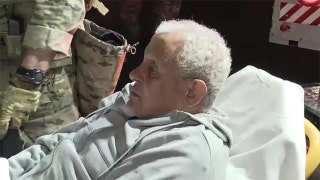NASHVILLE, Tenn. – Attempts to dislodge Wall Street protesters who have occupied parks, plazas and other public spaces have helped the groups in some cities shift their message from poorly defined angst over corporate greed to more broadly understood discussions about rights to free speech and assembly.
Widely publicized arrests in Nashville changed the battle cry from "We are the 99 percent!" to "Whose plaza? Our plaza!" Protesters there and in other cities have cited their First Amendment rights in legal fights against efforts to restrict their gatherings.
First Amendment experts say the argument resonates with people across the political spectrum because petitioning the government in a public forum has been part of American culture since its earliest days.
"It raises the issue to something that Americans feel very passionate about, regardless of where you are on the Wall Street issue or economic or political issues," said Gene Policinski, senior vice president and executive director for the First Amendment Center in Nashville, a non-partisan group that focuses on education about free speech.
Tennessee state officials arrested dozens of protesters at Legislative Plaza in the shadow of the state capitol building last week after announcing a new overnight curfew. The protesters went to federal court seeking a temporary restraining order against Gov. Bill Haslam arguing the curfew violated their rights to free speech and freedom of assembly.
U.S. District Court Judge Aleta Trauger said she couldn't think of a more quintessential public forum than the plaza where people have been camped out for weeks. The state quickly backed down and announced they would stop enforcing the curfew.
Similar legal arguments have been made in other cities where officials have put restrictions on public places often citing health and safety concerns.
A Providence, R.I., city councilor is planning to introduce a resolution expressing support for Occupy Providence activists to remain indefinitely at a public park downtown where they have been camping for nearly three weeks. He called it a "lawful expression of their First Amendment rights." Activists there ignored a Sunday deadline to vacate the park.
Occupy Wall Street protesters are suing New Jersey over their freedom of speech, arguing that the state is trying to silence them by limiting what items they take to a World War II memorial outside the Statehouse in Trenton. The ACLU of New Jersey asked a state judge to issue a temporary restraining order to stop police from enforcing rules on camping and picnicking items at the site.
The American Civil Liberties Union of Minnesota is asking officials in Minneapolis to rescind new restrictions on Occupy protesters that bans signs taped to plaza property and overnight sleeping when the weather turns bad.
Attorneys for the Occupy Sacramento protesters sought a temporary restraining order to stop the city from banning anti-Wall Street protesters from camping overnight in a downtown park. They said it violated the protesters' right to free assembly, but a federal judge ruled this week that the time restriction does not violate protesters' First Amendment rights.
Occupy Nashville protester Albert Rankin, 25, said free-speech rights were not what originally drew people to the movement, but the constitutional debate has subsequently helped increase the number who were coming out regularly in Nashville.
"Once they had the audacity to try to violate our First Amendment rights, it really galvanized a lot of people who weren't even originally interested in the movement to come out and support us, just because that's a fundamental right that had been denied us," said Rankin, who was at the plaza on Tuesday.
Hedy Weinberg, Executive Director of the American Civil Liberties Union of Tennessee, said that some people were disdainful of the protesters' message about corporate influence in government before the arrests there.
"But now that this state attempted to shut down their speech, people from a range of political perspectives are saying that is unacceptable," said Weinberg, whose group is representing the protesters in Nashville.
Policinski said the state has the right to enforce rules about the use of public space if it applies them evenly and fairly. But the arrests of protesters in Nashville have raised questions about whether adequate notice has been given when applying curfews and whether permits or insurance requirements improperly chill free speech in these public places.
The arrests even have Tennessee politicians on both sides of the aisle calling for their rights to be respected, as long as public safety and security isn't threatened.
Republican state Sen. Stacey Campfield said he doesn't agree with the opinions of Occupy Wall Street protesters but that groups of all political backgrounds have used Legislative Plaza to make their voices heard, including tea party groups and anti-tax protesters.
"That's where everybody goes when they want to confront their government," he said. "If you can't confront your government there, where are you going to go?"
___
Associated Press writers Lucas L. Johnson II in Nashville and Erika Niedowski in Providence, R.I., contributed to this report.








































